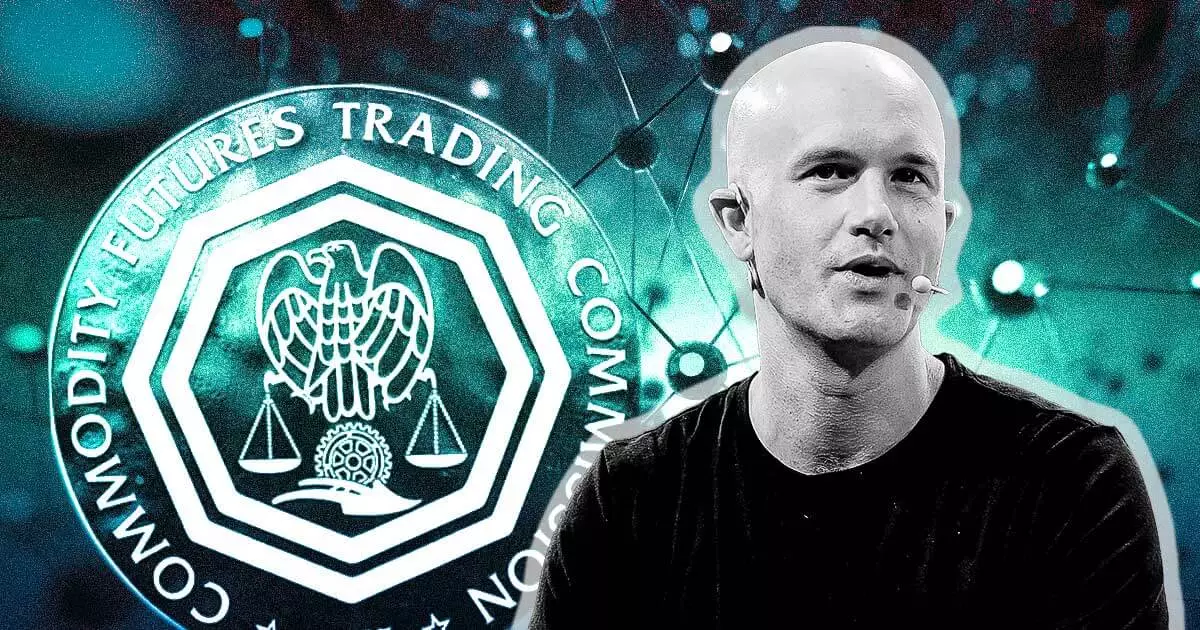Coinbase CEO Brian Armstrong recently voiced his opposition to the U.S. Commodity Futures Trading Commission’s (CFTC) pursuit of enforcement actions against decentralized finance (DeFi) protocols. In a post on X (formerly Twitter), Armstrong argued that these protocols should not be considered “financial service businesses” and suggested that they should take their cases to court instead. He expressed confidence in the courts’ ability to uphold the rule of law, highlighting the need to establish precedent in this rapidly evolving space.
The CFTC’s recent filing of unregistered derivatives trading charges against three DeFi protocols – Opyn, Deridex, and ZeroEx – spurred Armstrong’s response. The regulator’s director of enforcement, Ian McGinley, emphasized that DeFi operators cannot assume that unlawful transactions become lawful simply because they are facilitated by smart contracts. This sentiment was echoed in McGinley’s speech at the Practising Law Institute, where he characterized unregulated DeFi exchanges as a significant threat to regulated markets and customer protection.
The CFTC’s approach to the cryptocurrency industry mirrors that of its regulatory counterpart, the U.S. Securities and Exchange Commission (SEC), which has initiated numerous enforcement actions against major crypto companies like Binance and Coinbase. However, critics of the SEC’s actions have advocated for the CFTC to take the lead in regulating this emerging industry. Nonetheless, Gabriel Shapiro, general counsel at Delphi Labs, cautioned against placing too much faith in the CFTC, suggesting that it may not be the ideal regulatory agency for crypto. Shapiro argued that the Commission’s perspective on DeFi is that it is illegal in the U.S. for commodity derivatives, indicating a potentially concerning stance.
The clash between the CFTC and proponents of decentralized finance has sparked a broader debate within the crypto community. While some believe that strict regulation is necessary to protect investors and maintain market stability, others argue for a more accommodating approach that allows for innovation and growth. The lack of regulatory clarity surrounding DeFi protocols has created uncertainty, making it difficult for businesses and investors to navigate the evolving landscape.
As the CFTC continues to pursue enforcement actions against DeFi protocols and the industry grapples with regulatory uncertainty, it is crucial to strike a balance between protecting investors and fostering innovation. The courts, as Armstrong suggested, may play a crucial role in shaping the legal framework governing DeFi. Establishing clear guidelines and precedents through legal proceedings can help bring about regulatory clarity and instill confidence in the future of decentralized finance.
The ongoing debate surrounding the CFTC’s enforcement actions against DeFi protocols highlights the need for thoughtful and informed regulation in the cryptocurrency industry. Balancing investor protection, market stability, and innovation is a complex task, and it remains to be seen how the courts and regulatory authorities will navigate this rapidly evolving space. As the industry continues to mature, it is crucial for all stakeholders to actively engage in the discussion and work towards establishing a regulatory framework that promotes responsible growth and fosters innovation in decentralized finance.

